“CLEAN” and “GARDENING” are words that are not normally seen together. Why, there is DIRT involved in gardening after all! Dirt that gets in your nails, on your clothes, all over your house…yeah, gardening is definitely NOT clean. For today's post, clean gardening is defined as the growing of herbs, vegetables and fruits without the addition of synthetic chemicals.
Clean Gardening Tips
When practicing clean gardening, no fertilizers, pest control products, and seeds are used that contain anything that would be considered not of natural origin. Using clean gardening techniques assures me that my family, pets and environment are not exposed to unnecessary hazards and pollutants. And believe it or not, the more natural your gardening, the better the fruits and veggies taste!
Don't miss our list of Work Gloves Made in USA.
Here are some tips planting a vegetable garden without chemicals. This spring with products that are not only clean, but that are also made or assembled in the USA.
Preparing the soil
The hubby and I have been enjoying the great spring weather in our neck of the woods by preparing our garden for planting. After years of growing our own veggies, herbs and melons, we have finally realized two important things necessary for successful chemical free garden preparation:
1. Invest in a good soil tiller
After years of turning the soil with a shovel (oh, my back!) or renting a tiller from a hardware store (which introduced an evil weed that took over the whole garden), we finally sucked it up last year and purchased a soil tiller. Tilling the soil is a great way to prevent weeds as it rips the existing ones right out from the roots. The hubby LOVES our assembled in Pennsylvania Mantis Tiller. It is small, but powerful enough to till our rocky soil. We till at least twice when preparing the garden plot. Once to break up the soil, and then again when adding the compost.
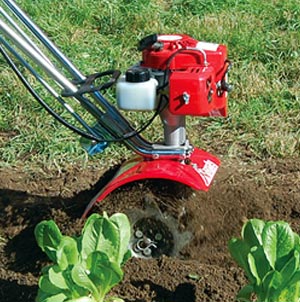
2. Take the time to make great compost (a.k.a Black Gold)
Compost is the best fertilizer you can use in your garden! The nitrogen, phosphorus, and potassium that healthy plants need all can be found in well cultivated compost. Not only are you reducing landfill waste by adding your vegetable scraps, leaves, and grass clippings (and other items that could be destined for the trash), but you are also saving money and the health of your family and pets by not adding chemical fertilizers into your gardening plan. Important gardening tip: cultivating the perfect compost takes time, so plan ahead! Manure, especially from horses and cows, is one of the best things to add to your compost. However, it takes months for fresh manure to “season” and become less acidic. Remember to hit up a local farm in the fall for fresh manure to prepare your compost for spring. For more on anything you could possibly want to know about composting, including a list of compostable items, check out the website “Composting Instructions How To Compost at Home”.
Seed selection
It is very important to me that the seeds I use for my garden are non-GMO. I am a realist, so I know that almost every item on store shelves today carries at least one ingredient that is genetically modified. I have found that, for me, shopping for GMO free food is time consuming (I have to read every single ingredient listed on the label), mentally draining (OMG- I am poisoning my kids if I buy them corn flakes! Wait, where did they go? I didn't see them wander away while I was reading the box!), and bank account depleting (no explanation needed, we all know how much more organic food costs!). By growing my own products from non-GMO seed, I can at least guarantee that most of what my family eats regularly is GMO free.
My favorite American seed companies that offer non-GMO seeds are:
Comstock, Ferre & Co
For 202 years Comstock, Ferre & Co has been offering heirloom seeds to American farmers and gardeners. Heirloom plants are grown from seeds that have been passed down from generation to generation. For a seed to be considered heirloom, its ancestor plant would have lived at least 50 years ago- before GMO science existed. Heirloom plants are cross pollinated which means that they are pollinated the natural way- by insects and wind. Oh, and vegetables grown from heirlooms seeds taste AMAZING! Comstock, Ferre & Co. seeds can only be bought on line, via catalog or at their store located in Wethersfield, Connecticut.
NeSeed
NeSeed, also located in Connecticut, guarantees that all of the seeds that they sell are non-GMO. New England Seed Company strives to be a the go to retailer of chemical free seeds. They offer Organic seeds, hybrid seeds and cross pollinated seeds. NeSeed GMO-free seeds can be ordered online and bought at stores. I am happy to have discovered that the family owned garden shop near me sells them!
For tips on how to start seeds, and to see some of my favorite American made seed starting supplies (and my cute kiddos), watch the How to Start a Clean Garden video we made 10 years ago!
For natural weed control, check out our list of Six American Made Weeding Tools We Love.

Pin this list to save it for later!
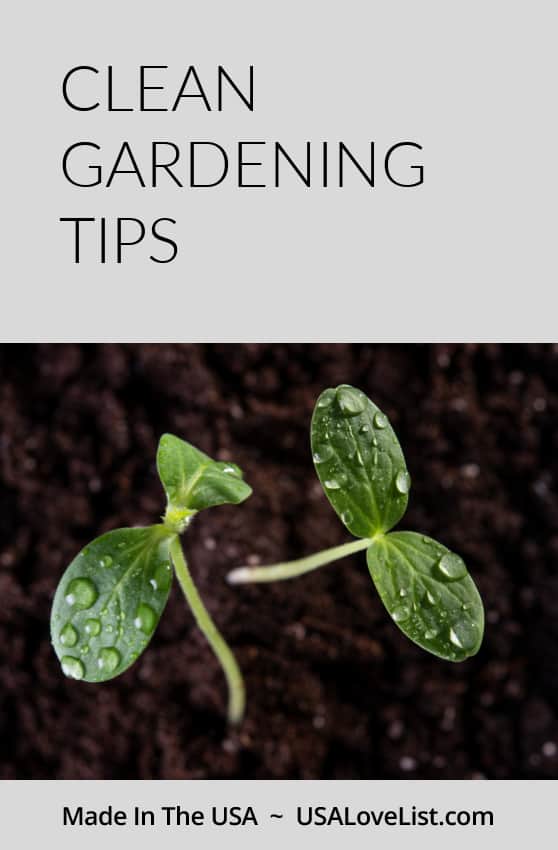
Follow USA Love List's board How does your garden grow? on Pinterest.

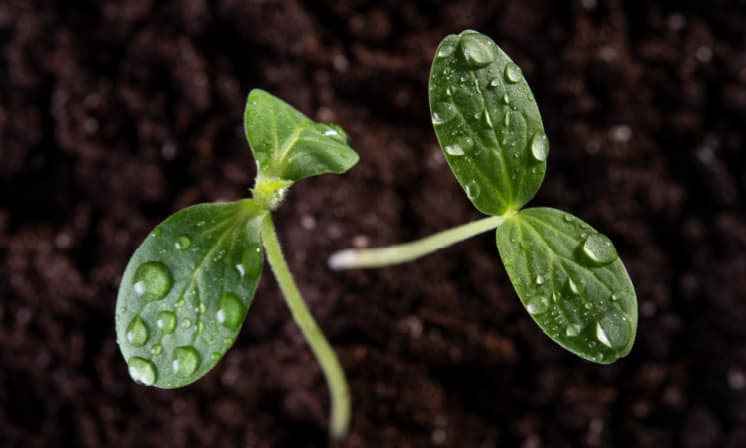
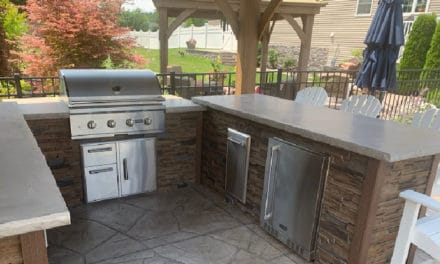
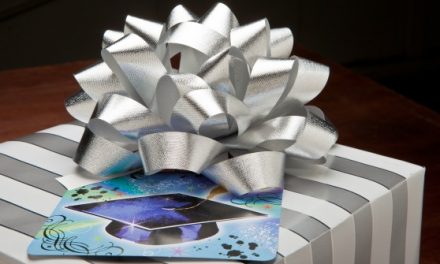
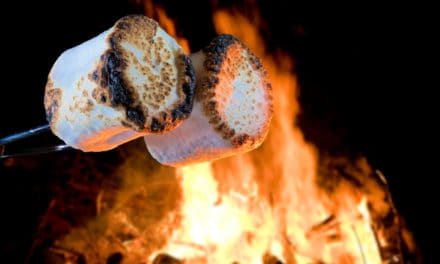

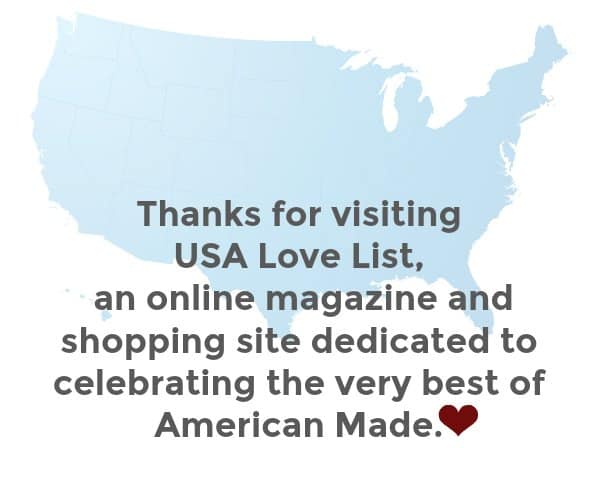
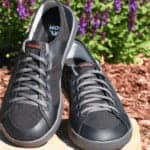
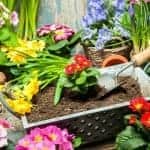
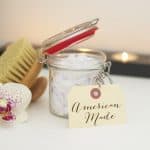

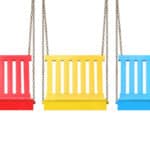
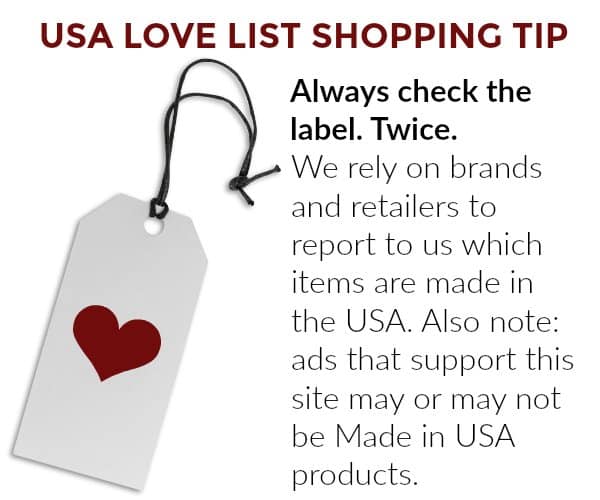
I just spent the entire day yesterday preparing the garden beds for annuals. Thanks for the great tips – perfect timing!
I do not like to use chemicals, so Clean Gardening Tips are helpful to me. I want to get organic fertilizer also.
I want to start composting. We’re getting closer to zero waste but compost will help lower the amount too.
Timely post for me, because I’ve been wanting to get some vegetables planned out for planting this year! I’ll watch the linked video next, thank you!! 😀
These are helpful tips. One day I would be so happy to have a chemical free vegetable garden.
Next on my to do list, is begin composting. Thank you for providing instructions!
This is good information! I’m hoping I’ll be able to have a garden – and a dog – if I can move to a place in the country.
I am hoping to start a garden for the first time this year! Grateful for all of these amazing options!
This is great. I enjoy gardening and can’t wait to use these tips in a couple weeks.
I am planning on starting an organic vegetable garden in my backyard, and I really appreciate these tips! I’ll be sure to buy a good soil tiller, do my own composting, and buy only non-GMO seeds!
Looking forward to an every bigger garden this year. The fresh fruits and veggies are just heaven!
I try my very best to follow these tips and even use other plants to help deter insects.
awesome , Thanks for the info !
Compost is the key to a successful garden. We have a 20 x 40 plot in the backyard and if we compost, we are overun with gorgeous veggies and berries in the summer!
Love these ideas – simple reminders and very important. good luck on your garden.
Great tips! We’ll be container gardening this year since we’re planning to move. I look forward to when we can build a more permanent garden and build up the soil!
Wish I could garden… If I only had the space!
I spend a bit of time in Crete twice a year and EVERYONE uses an tiller. And hardly anyone uses anything except diatomic earth : no fertilizers, no chemicals. We love the produce there.
Can’t wait til we get our own place so I can start gardening. Thanks for the recommendations for non GMO seeds.
I’d really like to start making my own compost, maybe this will be the year!
I have a very thick overgrown dandelion in my yard and the soil seems to get harder and harder… and the more I weed and dig up stuff the more they come out… im thinking of a tiller you recommend…. would that work for my delema… also i live in a dry county but close to the Napa wine county… but the air is so dry… what would be the best thing to do if i want to pland almost anything eaten off the garden…. soil,watering,fertilizing… thanks for taking time to read this… namaste